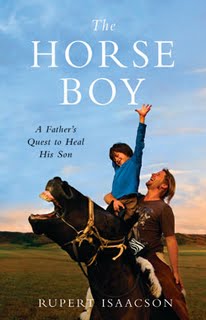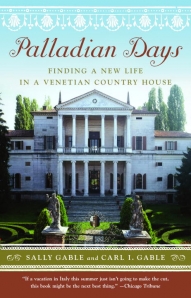Any kind of emotional or developmental disorder remains a stigma in modern-day society. Perhaps we cannot help it; those of us who are “normal” can be embarrassed or irritated (or both) when in the company of individuals who are “not quite right.” We are simply afraid of what we do not understand. Think of how much more fear and shame the parent of a child with one of these disorders would experience. This book is about all of that, and more.
Rowan Isaacson seemed perfectly ordinary as a newborn, but as time went on, it was clear that he was not developing as he should. By the age of three, he had been diagnosed as autistic, and his parents went into overdrive in their search for therapy. This search was based not in academics, but in desperation; Rowan was nearly uncontrollable. Screaming, hitting, tantrums, and other neurological explosions were his normal state. His parents were desperate to help, if for no other reason than to regain their lives.
Western medicine did not so much fail them, as it simply did not know what to do. The parents were opposed to heavy medications that would sedate Rowan; they wanted to heal him, not control him. They had noticed that Rowan possessed some kind of connection to the animal kingdom, through his relationship with Betsy, their neighbor’s horse. This began a cascade of independent research that ultimately led to the family packing up and traveling to Mongolia when Rowan was six years old, in a sincere attempt to heal their son by working with the shamans of the original horse people. Actually, they would have been happy if this trip yielded nothing more than a toilet-trained little boy.
The narrative is overly dramatic in places, yet sincere from the writer’s point of view (Rowan’s father). His frustration with his son’s situation is palpable throughout the book, and although it’s sappy in places, you never get the feeling that any of the writing is for effect. This man is clearly torn by his love for his child, his desire for healing, and his underlying fear that nothing will help. The reader is clearly feeling the family’s pain as make the difficult traverse in the wilds of Outer Mongolia with a youngster that cannot express himself in a civil manner.
I very much enjoyed the frank discussions about faith that pop up throughout the book. Religion is not specifically dealt with, but belief in otherworldly things is a big part of the story here. Although the author never clearly admits what his own personal beliefs are, he explains his reasoning for the course he took, and his wonder at what he does not understand. I believe that the discussion is honest and forthright, and well worth considering, regardless of a person’s religious views.
Rated: Moderate. The multiple instances (nearly 40) of using various inappropriate terms for Deity are the most common swearing found. There are also a couple dozen instances of other mild to medium terms. Body parts are discussed using proper anatomical terms in appropriate fashion, and there are no explicit sexual descriptions.




